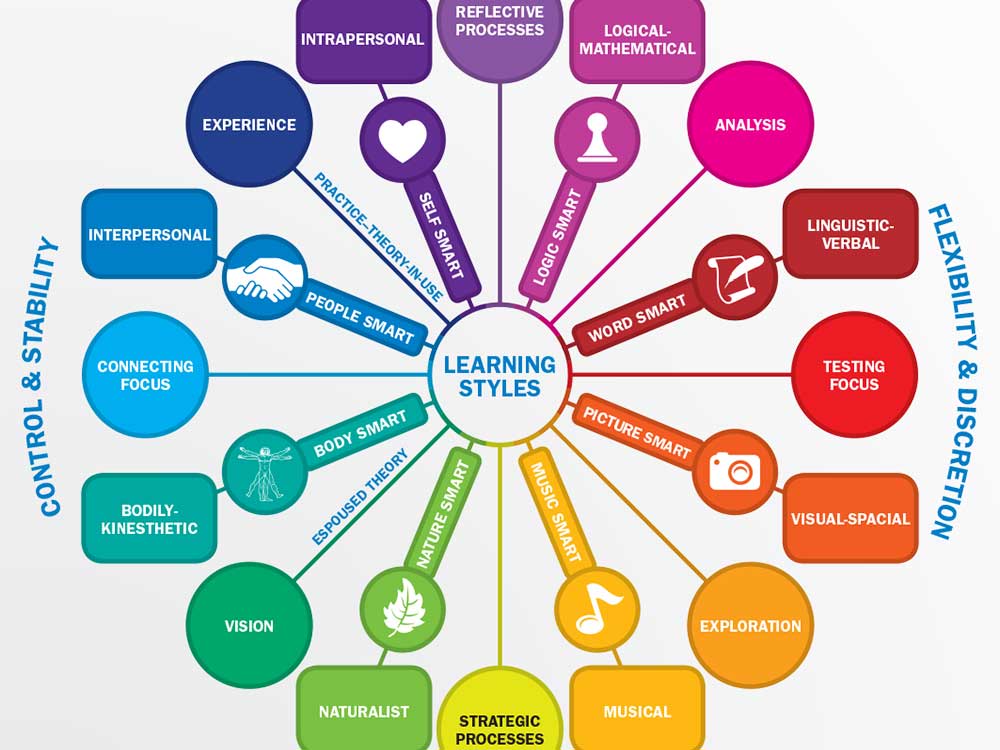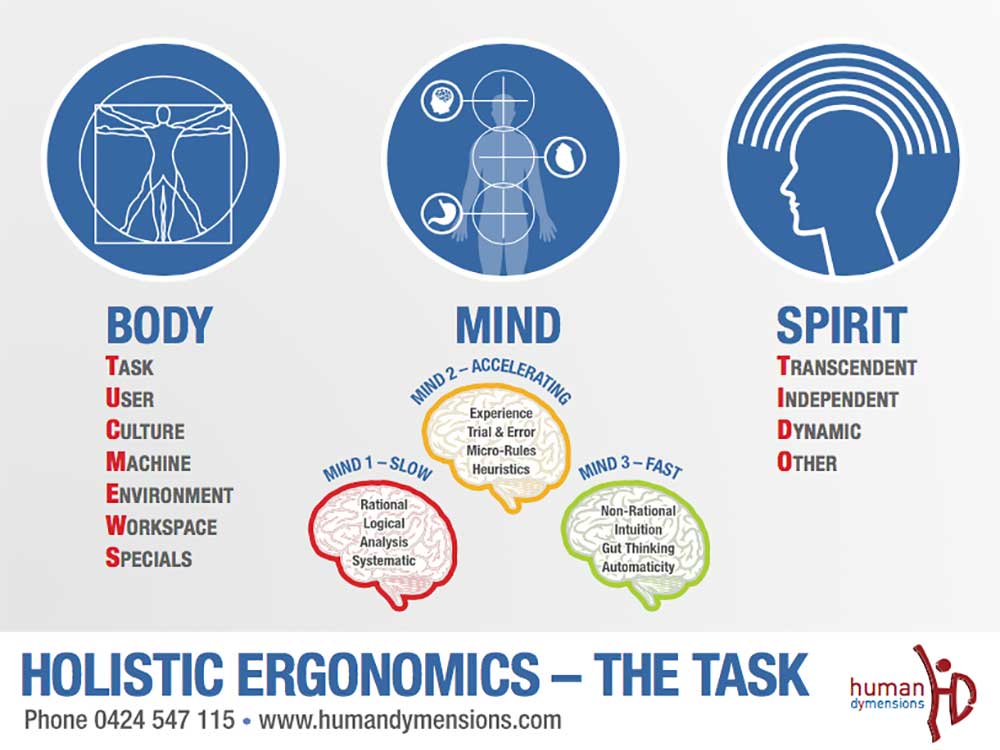
Learning, Community and The Social Psychology of Risk Unit 7 Face to Face
29 September 2016
Holistic Ergonomics Unit 6 (eLearning)
30 September 2016Learning Outcomes
The Social Psychology of Risk course is a professional program that requires development of particular attributes for accreditation purposes. These are also included in the Learning Outcomes.
On successful completion of this unit, Participants should be able to:
- Understand the implications of a social psychology of risk for learning and learning through community
- Identify contemporary theories of education and relevance to the social psychology of risk
- Investigate theories of education and learning for understanding human judgment and decision making
- Utilise knowledge of curriculum theory, pedagogy, communities-of-practice, culture analysis and change
- Recognise cultural indicators in organisations that affect learning and risk maturity
- Develop methods for managing learning and development in organisations in regard to risk
Required Text
Long, Ashhurst and Fitzgerald (2017) Tackling Risk, A Fieldguide to Risk Engagement
This book is posted to you upon Module Registration
Videos – Lectures
The Learning, Community and Risk Lectures are available at https://vimeo.com/album/3949920
Password to access the videos: Provided on registration.
Please watch the videos and reflect on any key issues in your journal. Any questions can be covered by email.
Assessment
Assignment 1 – Reflective Journal and Book Critique
The purpose of this assignment is keep a reflective journal based on the videos and provide a critique of Chapters 1 & 2 of Long and Ashhurst (2016) Tackling Risk, A Fieldguide to Risk Engagement
Content
Topics will include:
- Methodology and learning
- Issues in Education and Learninga.Learning and teaching styles (political, social, cultural, historical)
- b.Theories of knowledge – epistemology
- c.Theories of learning
- d.Formal and informal education
- e.Technique and technology in learning
- f.Education as social/cultural reproduction
- g.Curriculum and The hidden curriculum
- h.Intelligence
- i.Triple loop learning
- j.Zone of Proximal Development
- k.Scaffolding
- l.Pedagogy
- m.Indoctrination
- n.Instruction and training
- o.Planning and curriculum design
- p.Assessment, accreditation and reporting
- q.Motivation
- r.Creating a climate for learning
- s.Behaviour management
- t.Cognitive, affective and psychomotor learning
- u.Community, social learning and Communities of practice
- v.Propaganda
- w.Service learning
- x.Gender in education
- y.Thinkers in education: Ken Robinson, Guy Claxton, Peter McLaren, Parker J. Palmer or Michael Apple.
- z.Student-centred learning
- The learning climate and culture
- Identity and integrity in teaching and learning
- Teaching beyond technique (Ellul)
- Who is the educated person? What is educational philosophy?
- An ontology and teleology of being and risk
- Creativity, imagination, resilience, thinking and learning
- Presentation skills
- What is experiential learning?
- What is learning through community?
- Communities of Practice and tackling risk
- Components of community capacity
- Communicating and consulting about risk (review)
- The unconscious in learning
- Meaning, purpose and risk
- Absolute unpredictability
- Fragility, discernment, paradox and risk
- Skills in designing experiential learning activities
Texts and references
Required texts
Claxton, G., (1999) Wise-Up, The Challenge of Lifelong Learning. Bloomsbury, London.
Long, R., (2012) Risk Makes Sense, Human Judgment and Risk. Scotoma Press, Kambah.
Recommended references
Long, R., (2014) Real Risk, Human Discerning and Risk. Scotoma Press, Kambah.
Michalko, M., (2011) Creative Thinkering, Putting Your Imagination to Work. New World Library, Novato California.
Wegner, E., (2008) Communities of Practice, Learning, Meaning and Identity. Cambridge University Press. London.
Further references
Apple, M., (1982) Education and Power. Ark. London.
Argyris, C., and Schon, D., (1996) Organisational Learning II, Theory, Method and Practice. Addison-Wesley, Reading Massachusetts.
Barry, K., and King, L., (2006) Beginning Teaching and Beyond. Cengage Books, Australia.
Bateson, G., and Bateson, M., (2005) Angels Fear, Towards an Epistemology of the Sacred. Hampton Press, Cresskill New Jersey.
Brown, V., Harris, J., and Russell, J., (2010) Tackling Wicked Problems Through Transdiciplinary Imagination. Earthscan, London.
Claxton,G., (1984) Live and Learn, An introduction to the psychology of Growth and Change in Everyday Life. Harper and Row, Cambridge.
Claxton, G., (1990) The Heart of Buddhism, Practical Wisdom for an Agitated World. Aqaurian Press, London.
Claxton, G., (1997) Hare Brain, Tortoise Mind, How intelligence increases when you think less. Ecco Press, London.
Claxton, G., and Lucas, B., (2004) Be Creative, Essential steps to revitalize your work and life. BBC Books, London.
Claxton, G., (2005) The Wayward Mind. Abacus Press, London.
Claxton, G., (2008) The Crtaetive Thinking Plan, how to generate ideas and solve problems in your work and life. BBC Books, London.
Claxton, C., and Lucas, B., (2010) New Kinds of Smart. Open University Press, London.
Cohen, A., (1983) The Educational Philosophy of Martin Buber. Associated Universy Press. Ruhterford.
DuFour, R., Eaker, R., and DuFour, R., (eds.) (2005) On Common Ground, The Power of Professional Learning Communities. Solution Tree Press. Bloomington, Indiana.
Effingham, N., (2013) An Introduction to Ontology. Polity. Cambridge.
Ellul, J., (1954) The Technological Society. Vintage Books. New York.
Ellul, J., (1976) The Ethics of Freedom. Eerdmanns, Michigan.
Ellul, J., (1990) The Technological Bluff. Eerdmans, Michigan.
Freire, P., (1972) Pedagogy of the Oppressed Penguin, Ringwood.
Gardner, H., (1993) Frames of Mind, The Theory of Multiple Intelligences, Fontana, London.
Gigerenzer, G., (2007) Gut Feelings: The intelligence of the unconscious. Viking, New York.
Gilovich (1991) How we Know What Isn’t so: the Fallibility of Human Reason in Everyday Life. Free Press, New York.
Goodman, P., (1962) Compulsoty Miseducation Penguin, Ringwood.
Hassin, R., Uleman, J., and Bargh, J., (2005) The New Unconscious. Oxford University Press, London.
Higgins, E. T., (2012) Beyond Pleasure and Pain, How Motivation Works. Oxford University Press, London.
Illich, I., (1970) Deschooling Society Penguin, Ringwood.
Jones, R., Clarkson, A., Congram, S., and Stratton, N., (eds.) (2008) Education and Imagination, Post Jungian Perspectives. Routledge. New York.
Lave, J., and Wenger, E., (1991) Situated Learning, Legitimate Peripheral Participation. Cambridge University Press, London.
Macklin, M., (1976) When Schools are Gone UQP, St Lucia.
McLaren, P., (1999) Schooling as a Ritual Performance, Toward a Political Economy of Educational Symbols and Gestures. Rowman and Littlefield, Oxford.
Michael, D., (1997) Learning to Plan and Planning to Learn. Miles River Press. Alexandria Virginia.
Moskowitz, G., and Grant, H., (eds.) (2009) The Psychology of Goals .The Guilford Press, New York.
Neville, B., (1989) Educating Psyche, Emotion, Imagination and the Unconscious in Learning, Collins Dove, Melbourne.
Novak, J., and Gowin, D., (2008) Learning How to Learn. Cambridge. London.
Palmer, P., (1993) To Know as We are Known, Education as a Spiritual Journey. Harper. San Franscico.
Polanyi, M., (1962) Personal Knowledge: Towards a Post-Critical Philosophy. University of Chicago Press, Chicago.
Postman, N., and Weingartner, C., (1969) Teaching as Subversive Activity Penguin, Ringwood.
Preston, N., and Symes, C., (1994) Schools and Classrooms, A Cultural Studies Analysis of Education. Longman, Melbourne.
Raynor, M., (2007) The Strategy Paradox, Why Committing to Success Leads to Failure. Doubleday, New York.
Reber, A., (1993) Implicit Learning and Tacit Knowledge. Oxford University Press, London.
Reimer, E., (1971) School is Dead: An Essay on Alternatives in Education Penguin, Ringwood.
Robinson, K., (2009) The Element, how finding your passion changes everything. Penguin. London.
Robinson, K., (2011) Out of Our Minds, Learning to be Creative. Capstone. London.
Schein, E., (2011) Helping, How to Offer, Give and Receive Help. Berrett- Koehler Publishers, San Francisco.
Siddons, S., (2008) The Complete Presentation Skills Handbook. Kogan Page, London.
Sloan, J., (2006) Learning to Think Strategically. Elsevier, New York.
Snook, I. Indoctrination and Education London, Routledge and Kegan Paul, 1972.
Tobin, D., (2000) All Learning is Self-Directed. ASTD. New York.
You must be logged in to post a review.



Reviews
There are no reviews yet.